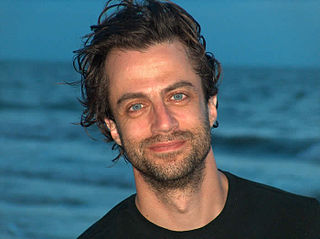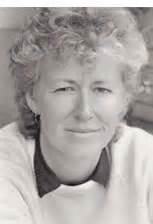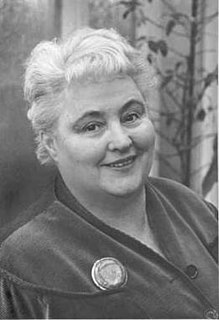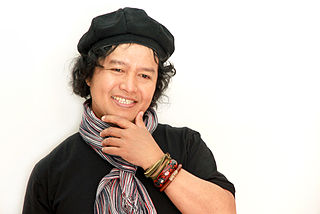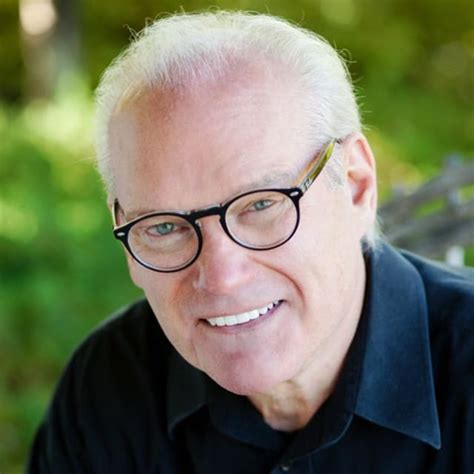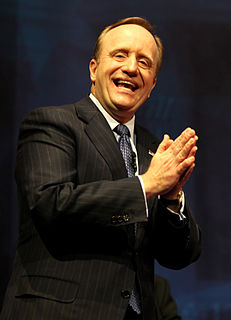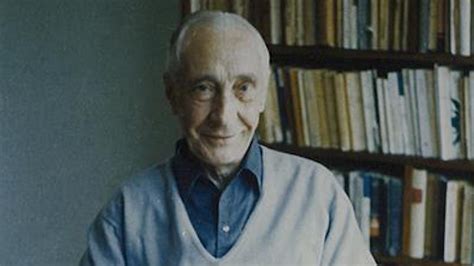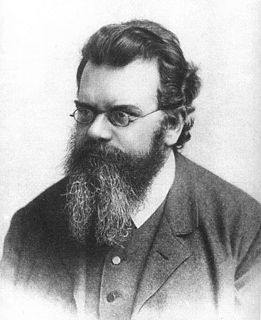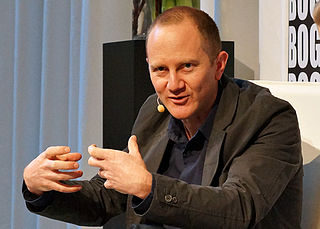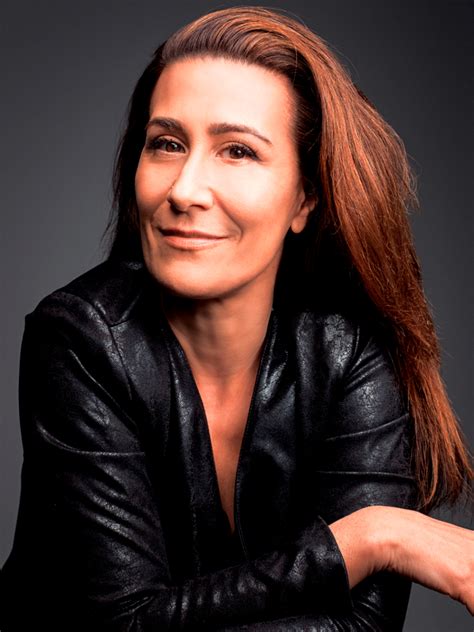Top 236 Memoirs Quotes & Sayings - Page 4
Explore popular Memoirs quotes.
Last updated on April 19, 2025.
Jim Grimsley's unflinching self-examination of his own boyhood racial prejudices during the era of school desegregation is one of the most compelling memoirs of recent years. Vivid, precise, and utterly honest, How I Shed My Skin is a time-machine of sorts, a reminder that our past is every bit as complex as our present, and that broad cultural changes are often intimate, personal, and idiosyncratic.
If anything, I've found nonfiction a little easier. You don't have to make anything up. Of course, that's the inherent difficulty as well: when you hit an information black hole, you don't get to make it up. That hasn't come up too often with this project though. I'm lucky to have tons of primary source material , reams of letters and diaries and memoirs.
How much energy is wasted in Italy in trying to write the novel that obeys all the rules. The energy might have been useful to provide us with more modest, more genuine things, that had less pretensions: short stories, memoirs, notes, testimonials, or at any rate, books that are open, without a preconceived plan.
I wish I had read Sacred Pregnancy when I was pregnant instead of the dozen books I had to piece together to try to make sense of it all. Anni Daulter has created what should be the new standard for today's mom: birth journals, labor workbooks, pregnancy memoirs, and holistic wisdom. It is gentle and enlightening, and lays the foundation for what we know helps women have the labor and birth they want and deserve: support, self-knowledge, and empowerment.
If you want help in starting to write memoirs, you don't want to fall into the clutches of a famous writer who has been hired to teach at a writing workshop solely because of his name's ability to attract students, rather than because of any teaching skill. You should not have to grapple with someone who secretly thinks you should be writing about his life rather than your own.
I have studied the enemy all my life. I have read the memoirs of his generals and his leaders. I have even read his philosophers and listened to his music. I have studied in detail the account of every damned one of his battles. I know exactly how he will react under any given set of circumstances. And he hasn't the slightest idea of what I'm going to do. So when the time comes, I'm going to whip the hell out of him.
Writing a book is something I actually feel like I could do. I don't know when that would happen, but I feel like if the right idea strikes, whether it be short stories or a novel or even a memoir that would be more substantial than most of the comedian memoirs people put out where it's big font and all the chapters are like ten pages long.
Memoirs have dominated the literary scene now for ten or 20 or even 30 years: most of them seem to use the conventions of fiction and it's astonishing how in so many of these books people seem to be able to remember conversations that took place when they were five years old and give three pages of coherent dialogue, which is utterly impossible.
From the essay "Twenty-five Things People Have a Shocking Capacity to Be Surprised by Over and Over Again" 1. Journalists sometimes make things up. 2. Journalists sometimes get things wrong. 3. Almost all books that are published as memoirs were initially written as novels, and then the agent/editor said, This might work better as a memoir. 6. Freedom of the press belongs to the man who owns one.
I have been reading Madame Roland's memoirs and have come to the conclusion that she was a very over-rated woman; snobbish, vain, sentimental, envious - rather a German type. Her last days before her execution were spent in chronicling petty social snubs or triumphs of many years back. She was a democrat chiefly from envy of the noblesse.
The best memoirs - like This Boy's Life, or Crazy Brave [by Joy Harjo], for instance - bring you through a private river of storytelling that joins a major ocean of human struggle and joy. The act of enunciation - the forms and strategies of storytelling - are every bit as literarily serious as they are in poetry or other prose forms.
Madame Bellwings, Memoir Elf Coordinator, was not at all pleased with this request, because elves who write the memoirs of teenage girls have the habit of returning to the magical realm with atrocious grammar. They can't seem to shake the phrases "watever" and "no way," and they insert the word like into so many sentences that the other elves start slapping them...and for no apparent reason occasionally call out the name Edward Cullen.
America is subsidizing what is left of the prestige and strength of the once mighty Britain. The sun has set forever on that monocled, pith-helmeted resident colonialist, sipping tea with his delicate lady in the non-white colonies being systematically robbed of every valuable resource. Britain's superfluous royalty and nobility now exist by charging tourists to inspect the once baronial castles, and by selling memoirs, perfumes, autographs, titles, and even themselves.
When Mr. William Faraday sat down to write his memoirs after fifty-eight years of blameless inactivity he found the work of inscribing the history of his life almost as tedious as living it had been, and so, possessing a natural invention coupled with a gift for locating the easier path, he began to prevaricate a little upon the second page, working his way up to downright lying on the sixth and subsequent folios.
There are people who can write their memoirs with a reasonable amount of honesty, and there are people who simply cannot take themselves seriously enough. I think I might be the first to admit that the sort of reticence which prevents a man from exploiting his own personality is really an inverted sort of egotism.
I think writers of memoirs need to be respected for the bold decision they take to bare their lives open. That alone should be enough. The things I write about, if you notice, are sensitive issues for a lot of people. If I told you my age, they would get ideas. The next thing you know they'll be filing lawsuits against me.
North Carolina Senator Jesse Helms has signed a deal with Random House to write his memoirs. Scholars will no doubt benefit from the reflections of a man who was wrong on every major issue for 40 years. Helms' aides say the proceeds from the book will be donated to the non-profit Jesse Helms Center where they apparently have more experience burning than publishing them.
Germany was a parliamentary democracy with many, many humane and decent people who kept writing in their journals - I've read these journals, these memoirs - "Surely our leaders will stop this nonsense. Surely someone will take on these thugs. Surely the pendulum will swing back." Everyone was sitting at home going, "Well, they haven't come for me. This is crazy, but surely someone's going to take care of it." We all have to take care of it.
I elbowed my way into the grubby café, bought a pie that tasted of shoe polish and a pot of tea with cork crumbs floating in it, and eavesdropped on a pair of Shetland pony breeders. Despondency makes one hanker after lives one never led. Why have you given your life to books, TC? Dull, dull, dull! The memoirs are bad enough, but all that ruddy fiction! Hero goes on a journey, stranger comes to town, somebody wants something, they get it or they don't, will is pitted against will. "Admire me, for I am a metaphor.
Eisenhower managed to begin the Vietnam war by not following his normal instinct of staying out of mischief. In his memoirs, he tells us why we didn't honor the Geneva accords and hold elections in Vietnam: because some 80 percent of the country would have voted for Ho Chi Minh. This is very candid. The sort of thing one might have found in Stalin'smemoirs, had he not made ghosts even of ghosts.
The life we led was a proof of man's capacity for adaptation.I think that even the condemned souls in purgatory after time develop a sort of homely routine.That is ,by the way, why most prison memoirs are unreadable.The difficulty of conveying to the reader an idea of a nightmare world from which he has emerged makes the author depict the prisoner's state of mind as an uninterruped continuity of despair.He fears to appear frivolous or to spoil his effect by admitting that even in the depths of misery cheerfulness keeps breaking in.
The East is unfamiliar with those confessions, memoirs, and autobiographies so beloved in the West. There is a clear difference in tonality. One's gaze never lingers on the suffering humanity of Christ, but penetrates behind the kenotic veil. To the West's mysticism of the Cross and its veneration of the Sacred Heart corresponds the eastern mysticism of the sealed tomb, from which eternal life eternal wells up.
Who ... is not familiar with Maxwell's memoirs on his dynamical theory of gases? ... from one side enter the equations of state; from the other side, the equations of motion in a central field. Ever higher soars the chaos of formulae. Suddenly we hear, as from kettle drums, the four beats 'put n=5.' The evil spirit v vanishes; and ... that which had seemed insuperable has been overcome as if by a stroke of magic ... One result after another follows in quick succession till at last ... we arrive at the conditions for thermal equilibrium together with expressions for the transport coefficients.
People say it's not what happens in your life that matters, it's what you think happened. But this qualification, obviously, did not go far enough. It was quite possible that the central event of your life could be something that didn't happen, or something you thought didn't happen. Otherwise there'd be no need for fiction, there'd only be memoirs and histories.
It's an ethical pact I've made with myself and with the reader - not to invent. And when I can't remember, I say I can't remember. I'm just appalled by the memoirs published by people who regurgitate dialogue, conversations from when they were small children, and they go on for three or four pages. I can't even remember what we said to each other ten minutes ago! How can I remember what was said sixty years ago? It's not possible.
And in the same way, FDR's not much of a father. Although the children in all their memoirs really talk about what a fun-loving guy Dad was, and how brooding and unhappy Mom was. The children sort of blame it all on the mother. Well, this is kind of standard and typical, and aggrieved Eleanor Roosevelt that she was not a happier mother. She wanted to be a happier mother. And I must say, she was a happier grandmother.
All the authors who've ultimately published Louder Than Words memoirs have been very happy to be chosen and excited about the possibility of having their memoir published. Even though these books deal with serious, often painful, issues, in all cases the authors felt as though writing their story would be an empowering and healing experience.
The parts in which I elaborated on the sexual life of the doctor herself, the personal life, her relation with men [in Memoirs of a Woman Doctor]. All this. They left only some very, very minute parts. And also the political, the political element in it. So in a way, they cut pieces that to my mind were very important.
In my opinion, the continued popularity of these gross distortions of Iran in the U.S. seems to reveal more about certain aspects of America than about Iran. It seems that the popularity of these memoirs is largely due to the fact that, while claiming to do the opposite, they regularly reinforce the dominant representations of Iran in America by constructing an exotic, backward, and barbaric Iran principally based on U.S. archives.
In how few words, for instance, the Greeks would have told the story of Abelard and Heloise, making but a sentence of our classical dictionary.... We moderns, on the other hand, collect only the raw materials of biography and history, "memoirs to serve for a history," which is but materials to serve for a mythology.
I was astonished to find that the positions my grandfather had defended were now overgrown and entangled with trees and thorns. I suppose I had developed a sense of reverence for the locations he described in his memoirs and letters - the forts and the high emplacements. I had expected them to have been preserved in some way.
I read a lot. I especially read memoirs and biographies. It's very helpful when you're thinking about what's possible and what exists in human behavior; if it exists out there then it can exist on the stage. I really try to go to a lot of concerts. A lot of live events. I just try to keep my ears really, really open.
Nothing detains the reader's attention more powerfully than deep involutions of distress, or sudden vicissitudes of fortune; and these might be abundantly afforded by memoirs of the sons of literature. They are entangled by contracts which they know not how to fulfill, and obliged to write on subjects which they do not understand. Every publication is a new period of time, from which some increase or declension of fame is to be reckoned. The gradations of a hero's life are from battle to battle, and of an author's from book to book.
Memoirs are going to be problematic sells for a while, though, because even if memoir means "based in memory," right now, in the collective mind, memoir means "recovery." When my agent and I started looking at small presses the possibility for my book, I realized most small presses were not publishing memoir, because they don't want to be associated with the genre that Mary Karr calls, half-facetiously, "literature's trashy cousin."
Writing the past is never a neutral act. Writing always asks the past to justify itself, to give its reasons... provided we can live with the reasons. What we want is a narrative, not a log; a tale, not a trial. This is why most people write memoirs using the conventions not of history, but of fiction.
When I was nine, the teacher asked us to write a piece about our village fete. He read mine in class. I was encouraged and continued. I even wanted to write my memoirs at the age of ten. At twelve I wrote poetry, mostly about friendship - 'Ode to Friendship.' Then my class wanted to make a film, and one little boy suggested that I write the script.
Buonaparte is certainly writing, or rather dictating, his memoirs. He walks backwards and forwards with his hands behind him, and dictates so fast that two or three of his suite are obliged to be in attendance, that the one may take down one-half of a sentence, and another the rest; they then literally compare notes, and put the disjointed legs and wings and heads of periods together. This is writing a book as he fought a battle.
I was always much impressed, in reading prison memoirs of revolutionists, such as Lenin and Trotsky ... by the amount of reading they did, the languages they studied, the range of their plans for a better social order. (Or rather, for a new social order.) In the Acts of the Apostles there are constant references to the Way and the New Man.
If you're going to do a memoir, then it's sort of at this age - in your late sixties or seventies - that you do it. I don't understand people who do memoirs when they're 20. I think most people need a little more time than 20 years to become the person they are. In fact, that process of becoming who you are is still ongoing when you get older, where you go, "Let's see where my next 10 years is going to take me." S
[Barack] Obama isn't pointing to anyone, and certainly doesn't like it when others note (correctly) that his influences were the likes of Saul Alinsky, the Chicagoan and modern founder of community organizing, or Frank Marshall Davis, the communist journalist and agitator from Chicago who mentored Obama in Hawaii in the latter 1970s, and who Obama warmly acknowledges in his memoirs.
